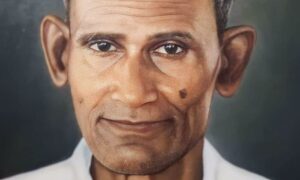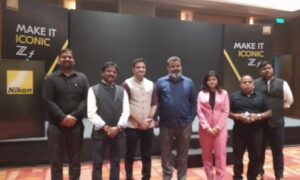The science way to make India a global player

The basic thrust in this direction is certainly to cut down red-tapism in seeking and pursuing research in science.

As the New Year ushers in, it has brought good news for the country and scientific community, specifically with the announcement from Prime Minister Narendra Modi at the inauguration of the Indian Science Congress on January 3.
The Prime Minster has announced that India will be among the top three countries in science and technology by 2030. And, what is most pertinent in this context is the moving up of India in the prestigious Global Innovation Index.
The Global Innovation Index is prepared based on the survey of innovative capacity of 100 economies all over the world. The Index is computed as an average of the scores across ‘Input Pillar’ (innovation enabling environment) and ‘Output Pillar’ (measuring actual achievements in innovations).
The Global Innovation Index, released by the Cornell University and World Intellectual Property Organisation, opines that India has climbed up 15 spots, from 81st rank in 2015 to 66th rank in 2016.
Among the BRIC (Brazil. Russia, India, and China) countries, China has moved to the prestigious top 25 countries in 2016.
So far science and technology is concerned, India has emerged as the global player in terms of quality in tertiary education, research, and development, quality of its universities and scientific publications and Information and communication technology service exports.
The other valuable factors which have put India on a high pedestal as a global driver of innovation have been the strong market potential, pool of talented scientific human resources and unique innovation culture.
At the 102nd Indian Science Congress, Modi argued for ‘ease of doing science’, which is as important as the ‘ease of doing business’.
The basic thrust in this direction is certainly to cut down red-tapism in seeking and pursuing research in science.
What is noteworthy is the renewed stress by the Prime Minister on making science and technology part of the corporate social responsibility and making ‘digital connectivity’ a ‘basic right’.
The Technology Vision 2035 brought out by the central government also focused on the critical aspect of digital connectivity. A pragmatic way, which was argued, has been to create and ensure a certain digital connectivity to every school going children at the age of 10.
At this juncture, the data on expenditure on science and technology as a share of Gross Domestic Product of various countries offer the real dynamics of the relationship between development and science and technology.
Among BRIC countries, China’s expenditure is 2.1% of GDP. It is followed by Russia’s 1.18%, Brazil’s 1.15% and India’s 0.85%. In contrast, advanced countries like South Korea, Israel, Japan and USA spend 4.9%, 4.10%, 3.5% and 2.74% of GDP respectively towards expenditure on science, technology, and research.
The role of the government needs to be more pro-active in augmenting more funding in scientific research and development.
The other policy reorientation of the government has been towards granting priority to scientific engagements in diplomatic relations.
A couple of months back, when the British Prime Minister visited India, scientific engagements between the two countries were accorded highest priorities.
India has always remained as an inquisitive civilization since ages. India also accorded importance to science by putting a phrase ‘scientific temper’ in the Directive Principles of State Policies of the Constitution.
The Constitution expected the citizens to adopt a scientific attitude in the day to day activities within the democratic fabric.
Modi has underscored it once again in recent times by invoking to ’rekindle the romance of science’ to make India giant global player in the field of science, technology, and scientific research.
The ‘ease of doing science’ will certainly be a milestone in this direction.

(The author is a policy analyst and can be reached at [email protected]. Views expressed are personal)












































